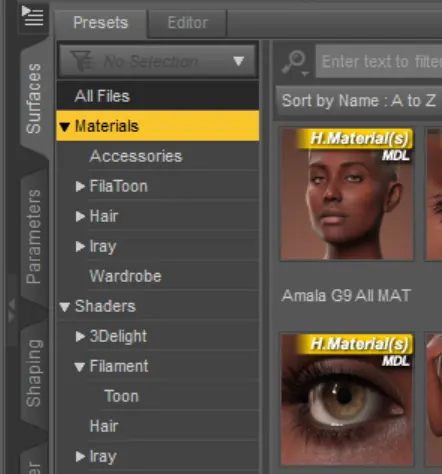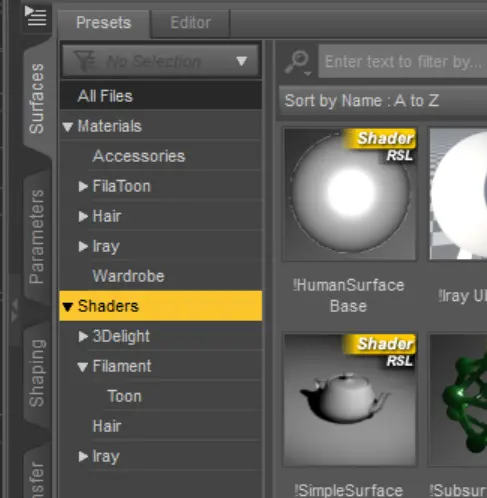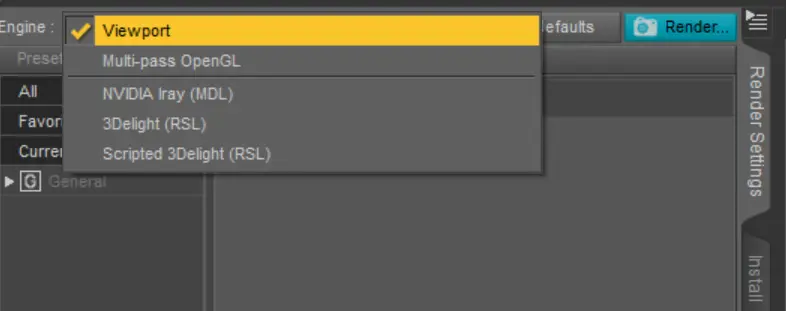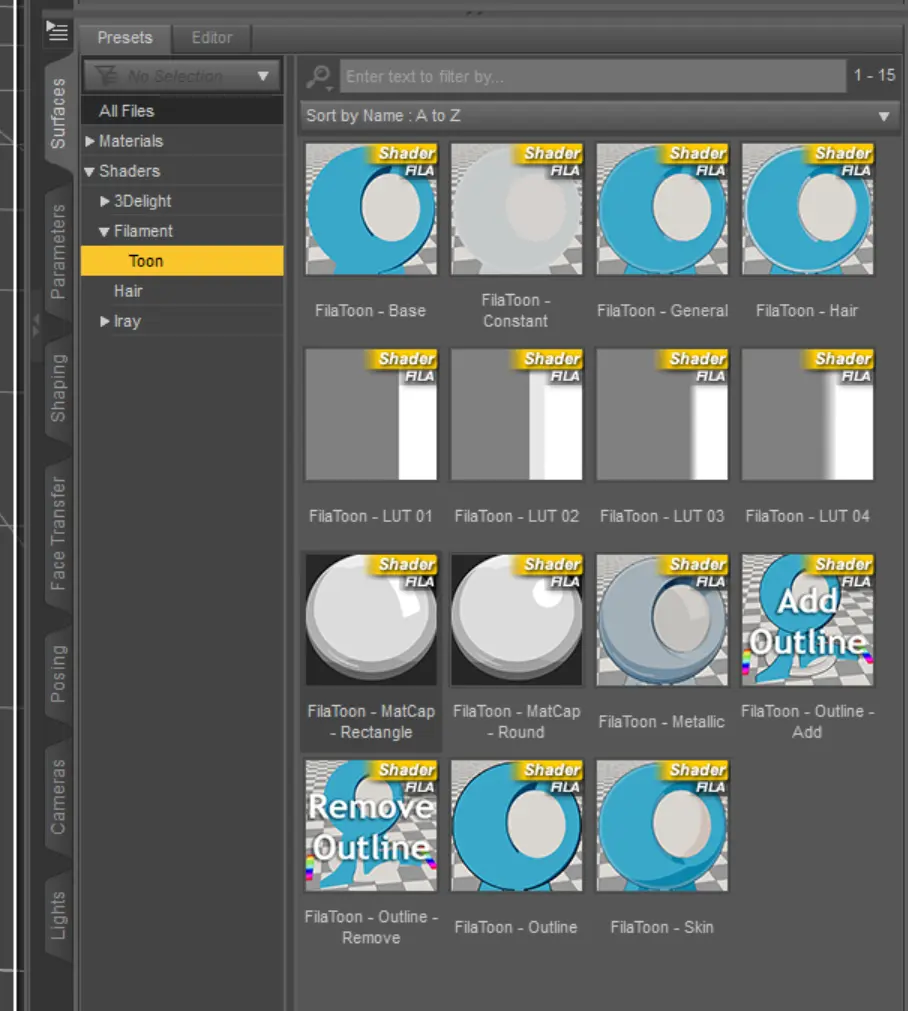- Published on
Mastering FilaToon in Daz Studio: #02
- Authors

- Name
- MIKAN
Unlocking FilaToon’s Potential
In Part 1, we explored the basics of FilaToon. Now, let’s delve into its advanced options and understand how it integrates with materials, shaders, and renderers in Daz Studio.
Understanding the Core Concepts: Material, Shader, and Renderer
To fully leverage FilaToon, it’s essential to grasp the key components of 3DCG rendering: materials, shaders, and renderers.
Material: Defining the Surface Properties
- Role: Materials define an object’s surface characteristics, such as texture, color, and reflectivity.
- Key Features:
- Determines the appearance of wood grains, metallic sheen, or fabric textures.
- Configurable in the Surface tab of Daz Studio.

Shader: The Calculation Engine
- Role: Shaders interpret material data and calculate light interaction at a pixel level.
- Key Features:
- Computes shadows, reflections, and light diffusion.
- Accessible via the Surface tab and customizable for FilaToon effects.

Renderer: Bringing Everything Together
- Role: The renderer converts the 3D scene into a 2D image using the material and shader data.
- Key Features:
- Supports stylized rendering like FilaToon or hyper-realistic rendering via NVIDIA Iray.
- Configure FilaToon in Filament renderer for optimal results.

How These Work Together
- Materials provide the base data (textures, colors).
- Shaders use this data to compute lighting and shadows.
- Renderers output the final image based on these calculations.
Shader Presets
Let’s explore the shaders provided as presets. These are preset configurations, but you can further refine them through the Edit feature.

FilaToon - Base
The foundational preset of FilaToon.
Combine it with other modules to control the overall look.
FilaToon - Constant
A module for applying consistent colors or shading.
Achieves a uniform appearance unaffected by light sources.
FilaToon - General
A versatile shading option.
Recommended for objects other than hair or skin.
FilaToon - Hair
A dedicated shading preset for hair.
Reproduces unique textures and shine.
FilaToon - LUT01
Adjusts surface shading and highlights.
FilaToon - LUT02
Adjusts surface shading and highlights.
FilaToon - LUT03
Adjusts surface shading and highlights.
FilaToon - LUT04
Adjusts surface shading and highlights.
FilaToon - MatCap - Rectangle
Creates rectangular highlights on the surface.
FilaToon - MatCap - Round
Creates circular highlights on the surface.
FilaToon - Metallic
Applies a metallic appearance to the surface.
FilaToon - Outline - Add
Adds outlines to the object.
FilaToon - Outline - Remove
Removes outlines from the object.
FilaToon - Outline
A preset specifically for outlines.
Be cautious when applying this to characters, as it removes base colors, turning the object completely black and making it irreversible.
FilaToon - Skin
A preset designed for skin shading.
Advanced FilaToon Tips
- Toon Shading: Experiment with edge thickness for bold outlines.
- Color Adjustments: Use the Surface tab to tweak base and specular colors for a vibrant look.
- Lighting Tips: Use flat lighting setups to maximize the cartoon effect.
Recommended Models and Next Steps
Here are some model bundles perfect for toon-style rendering:
Don’t forget to check out our other tutorials for more tips!